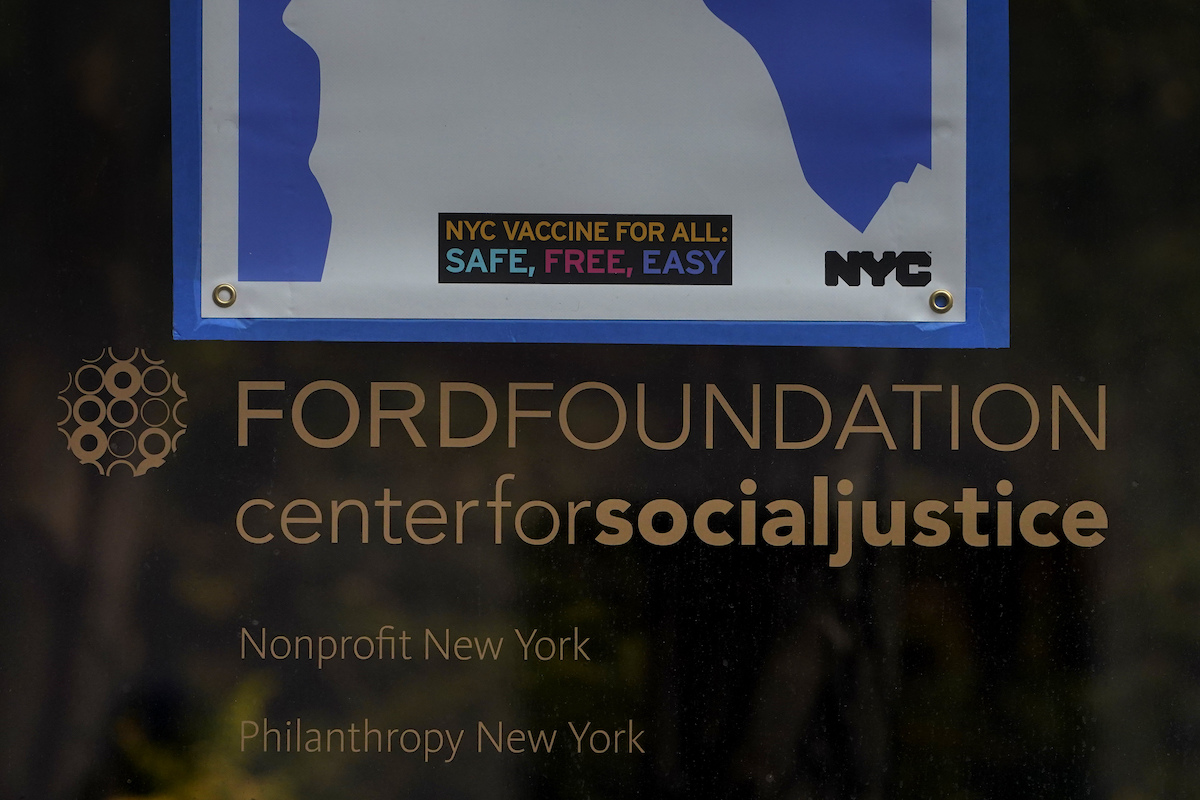The Ford Foundation gives over $500 million dollars annually, mostly in grants, to nonprofit organizations around the world. Foundation President Darren Walker came from humble beginnings in rural Texas and now oversees the Foundation’s $15 billion endowment. In his recent and wide-ranging 60 Minutes interview with Lesley Stahl he makes the case for reimaging philanthropy as not primarily about giving aid but rendering justice. Justice and charity are the duty of all – and are intimately related – but a redefinition of philanthropy that collapses the distinction between them serves neither.
Walker begins to make his case in an idiosyncratic manner. He distinguishes between generosity and justice, not as goods or virtues in themselves, but in the emotional and intellectual states of donors:
“Generosity actually is more about the donor, right? So when you give money to help a homeless person, you feel good. Justice is a deeper engagement where you are actually asking, “What are the systemic reasons that put people out onto the streets?” Generosity makes the donor feel good. Justice implicates the donor.”
There is some truth in this, as St. Paul illustrates in 2 Corinthians 9:7: “Each one must give as he has decided in his heart, not reluctantly or under compulsion, for God loves a cheerful giver.” A true gift is freely given – a result of individual conscience and agency, and the joyful giver is beloved of God. However, Jesus admonishes us that the gift must ultimately not be centered on our own joy, to be trumpeted before men: “But when you give to the needy, do not let your left hand know what your right hand is doing, so that your giving may be in secret. And your Father who sees in secret will reward you.” (Matthew 6:3-4)
Walker defines justice as something fundamentally different. Whereas generosity does not have an intellectual component, justice seeks causes and roots of problems. In seeking justice, the donor locates the causes in themselves and so experiences themselves as implicated in the need. This is not succinctly explained or expounded upon in the interview itself, but the Ford Foundation’s conception of justice, summarized in the tagline featured prominently on its homepage, reads: “Justice begins where inequality ends.”
While Walker states in the interview, “I am a capitalist. I believe there is no better way to organize an economy than capitalism,” he also believes the donor class – those who process what he believes to be a disproportionate amount of the nation’s wealth – are in some sense responsible for the immiserating of the working class. This sort of zero-sum thinking about the creation of wealth obscures the problem of poverty. It is also intensely parochial as global wealth inequality has been falling and wealth inequality is increasingly a first world problem. This is not to say that issues of income inequality in the first world are not serious or that institutional and economic factors which fuel it should be ignored but rather that inequality’s eradication cannot be all there is to justice. There was grave injustice in the world prior to the emergence of both greater wealth and inequality which has characterized human civilization since the 18th Century.
St. Thomas, writing in a time of both much greater material poverty and equality, gives us a broader definition:
“And if anyone would reduce it to the proper form of a definition, he might say that ‘justice is a habit whereby a man renders to each one his due by a constant and perpetual will’: and this is about the same definition as that given by the Philosopher (Ethic. v, 5) who says that ‘justice is a habit whereby a man is said to be capable of doing just actions in accordance with his choice.’”
This traditional definition, in addition to its wider applicability and greater explanatory power, makes us all capable of both rendering justice and receiving justice according to our own circumstances and vocation.
Generosity is then a virtue intimately connected to justice, pertaining to the good use of the material goods we are entrusted to steward in this world. The gift of the poor widow is thus more generous than the gifts of the donor class, “For they all contributed out of their abundance, but she out of her poverty has put in everything she had, all she lived on.” (Mark 12:44).
The nature of justice and generosity are not to be found in the psychological state of wealthly donors but by the habits of daily living of persons great and small rendering to their neighbors what they are due informed by their conscience and context. Justice is not merely something the common man waits upon the ultra-wealthy to deliver or deny. Both justice and generosity are everyone’s business – and the Ford Foundation’s language is an obstacle, not an aid, to persons everywhere taking that responsibility seriously.

